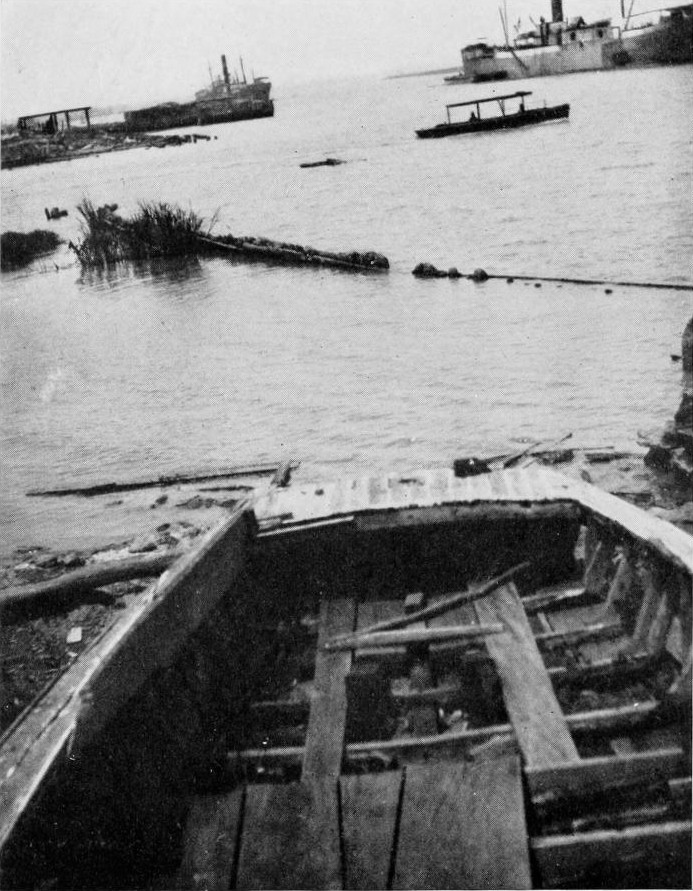MOBILE — Africatown Heritage House is now home to “Clotilda: The Exhibition,” which shares the long-untold story of the last known slave ship to arrive in the United States. The site opened to the public last Saturday, July 8. The History Museum of Mobile hired the facility’s first-ever manager, Jessica Fairley, who began working earlier this month and is eager to share the incredible and inspirational accounts of the 110 survivors of the ship with visitors from near and far … whether they come from around the block or around the globe.
This is a brief history of the Clotilda and its survivors:
Under the cover of night in the summer of 1860, a ship carrying 110 Africans slipped into Mobile Bay. The Clotilda, the last known U.S. slave ship, made its illegal voyage 52 years after the international slave trade had been outlawed. Though it was illegal to bring enslaved people into the United States, domestic slavery itself remained legal until 1865.
Upon arrival in Alabama, the 110 captives were offloaded into the marshes in the delta of the Mobile River. To conceal his crime, the man who had arranged the transfer ordered the boat burned and sunk. After hiding the enslaved Africans in the wilds of the Mobile Delta, he divided and sold them at locations throughout Alabama.

When slavery was abolished in 1865, the 110 dreamed of returning to Africa but did not have the financial means to get there. About a third of them pooled their limited resources to purchase land and transform it into an independent community they called “Africatown.”
There they maintained their African identities; continued to speak their native languages; established their own set of governance; and built churches, schools and businesses based on what they knew from their homeland. In the ultimate demonstration of resilience, they created their own world on the northern end of Mobile. In the late 19th century, this was the only community established and governed entirely by African-born Americans.
In 2019, the remains of the shipwreck were identified at the bottom of the Mobile River, providing irrefutable proof of a 160-year-old crime. The sunken Clotilda also offers a tangible link to the 110, making their descendants a rarity among the millions of African Americans who long for specific details about when and how their ancestors were forcibly brought into the United States.
“Clotilda: The Exhibition” will focus on those 110 men, women and children, whose stories are shared through a combination of interpretive text panels, documents and artifacts, including some pieces of the sunken ship scientifically verified to be the Clotilda. The exhibition is installed at the Africatown Heritage House, a site newly constructed by the Mobile County Commission and the City of Mobile.
Jessica Fairley. The manager of the facility, Jessica Fairley, joins a growing group of Mobilians who are working hard to share the stories of the Clotilda, its survivors and the Africatown community as a whole. She is responsible for the day-to-day operations of the site, ensuring that it fulfills its goal of honoring the past while also focusing on the future of Africatown.
Fairly grew up nearby, attended public schools with students from Africatown, and became fully invested in the family stories of one of her close friends, who is a descendant of the 110. Fairley says she’s a storyteller at heart, and this job truly allows her to tap into that passion while she does something for the greater good. “This is not my story,” she says. “This is my friend’s story. Now Africatown Heritage House is the home of that story … and we’re ready to share it with the whole world.”
“Imagine if people come from all over the world just to hear this story,” Fairley says. “I want Africatown Heritage House to be the Plymouth Rock for Black people. I want people from all over the world to be able to come here, place their hands on the glass (which will encase remnants of the Clotilda) and connect with their ancestors.” “That’s going to give them an experience that they’ve never had before and never knew they could have,” Fairley continues.
“Africatown Heritage House is a place of hope and pride. You’ll come in and see what these people were able to do after they were taken away from their homes and put in a place unknown to them. I don’t know what my ancestors went through, but knowing what the survivors of the Clotilda went through gives me a piece of my story,” she said.
Tiffany Pogue. Communications intern, Tiffany Pogue, felt a calling to help the Africatown community. Pogue is the descendant of Clotilda survivor Kupollee (Pollee Allen) and fellow Africatown founder Lucy Allen, her third-great-grandparents. Pogue is working with the public relations partnership forged by the Mobile County Commission, History Museum of Mobile and Visit Mobile, and will be helping to share the stories of the descendants and Africatown with journalists around the world.
“I build on the legacy of my ancestors to guide me through life,” Pogue says, “So it’s a privilege to be in this role and use my unique voice and perspectives to uplift their history and help steer our narrative.”
Pogue and the other descendants were welcomed to a special, private visit to “Clotilda: The Exhibition” at Africatown Heritage House prior to its grand opening to the public.
Africatown Heritage House opened to the public on July 8. It will be open Tuesdays through Saturdays, from 10 a.m. to 5 p.m. The exhibition will have limited capacity, so tickets will be sold in time-block increments and should be purchased in advance at www.clotilda.com.
To learn more about the team from the History Museum of Mobile, which has spent the past few years researching, curating and constructing Clotilda: The Exhibition, please visit clotilda.com.




